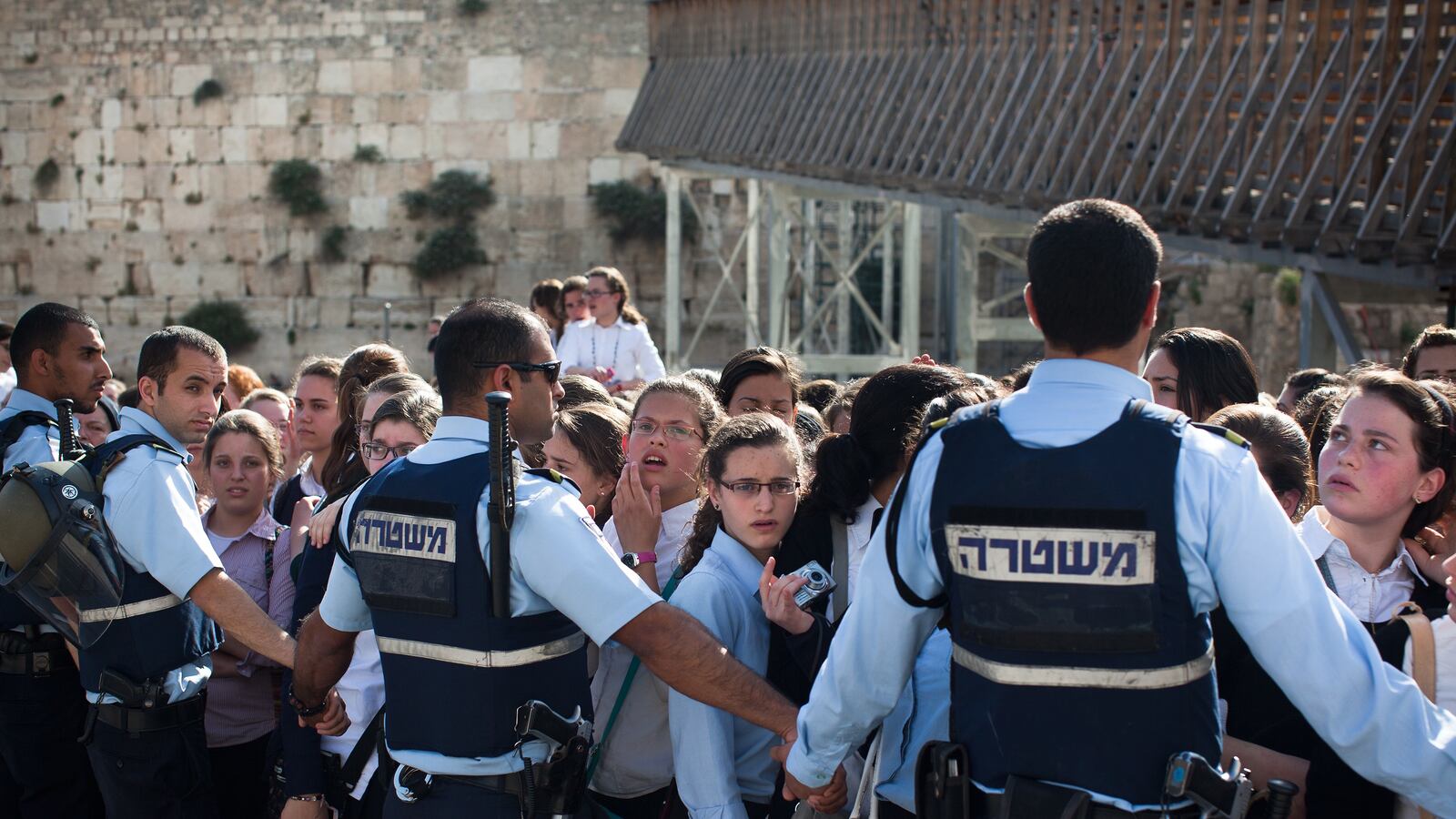On the eve of today’s Jewish fast of Tisha B’Av, the Orthodox Union and the Rabbinical Council of America released a joint statement. The two major Orthodox bodies called on Jews around the world to start “refraining from language that divides us and promoting language and deeds that unite us.” That, of course, is a very nice—and very needed—message. It’s a message with which I completely agree. There’s just one thing I don’t understand: what exactly do they mean by unity?Here’s the part of the statement that gives rise to my confusion (and, if the Twittersphere is any indication, I’m not the only one who’s confused):
Recently we have witnessed a frightening exacerbation of internal discord and an ominous intensification of inflammatory rhetoric. We have heard vile insults, offensive name-calling—including the inciteful invocation of the name 'Amalek'—and vicious personal attacks emanating from all sides on the various troublesome issues that we now confront. We have even witnessed physical violence. Indeed, in recent months we have seen precincts of Jerusalem’s Old City, in the shadow of the destroyed Temple for which we mourn today, become a venue for provocation and insult, rather than a place of unity for the global Jewish community.

Rather than call out specific parties for specific actions, the statement takes a vague and allusive approach, leaving us to guess at the who’s and when’s and what’s. It doesn’t spell out whom the “vile insults,” “vicious personal attacks,” and “physical violence” are supposed to be attributed to, though one clause does seem easy enough to figure out: the mention of “Amalek” name-calling probably refers to Shas leader Rabbi Shalom Cohen’s diatribe against Modern Orthodox Jews, whom he publicly compared this week to the hated biblical Amalekites. But there’s one word I’m particularly curious about here: “provocation.” Who, I wonder, is being accused of causing a provocation “in the shadow of the destroyed Temple for which we mourn today?”
Though it’s impossible to say for certain (the vagueness of the statement guarantees that), the answer seems pretty clear: Women of the Wall. The pluralistic women’s prayer group has been accused of “provocation” countless times over the past few months and years, to the point where the word has become a dog whistle; anybody who’s been following this story in Israeli politics will hear the word and immediately recognize its intended meaning. “Provocation,” the charge constantly lobbed at Women of the Wall by Israel’s ultra-Orthodox population and particularly by Western Wall Rabbi Shmuel Rabinowitz, implies that these women are not sincere in their desire to pray according to their customs at the Western Wall; they’re just trying to kick up a fuss. Given that the women have constantly stated and restated, and proven through over 20 years of concerted prayer, that this is an unfair characterization, it’s very disappointing for the OU and RCA to echo that rhetoric.
If indeed they are echoing it.
Of course, it could be argued that I’m wrong, that I’m reading too much into one little word, and that it doesn’t actually refer to Women of the Wall. I hope all of that’s true. But if it’s true, the OU and RCA should take pains to make that clear. It should not issue a very passionate but very vague cri de coeur that refrains from calling out specific parties by name—presumably for fear of exacerbating the very discord it aims to combat—and instead lumps together all the parties involved in a given dispute as if they’re all equally guilty of fomenting that discord.
Because, let’s be clear: Women of the Wall’s insistence on praying according to their customs at the Western Wall does not constitute fomenting discord, even if discord does result from it. And it does not constitute violence, even if others do feel spurred by it to engage in violent acts. What it constitutes is the struggle for legitimate civil rights.
If the OU and RCA really want to promote unity—a very noble goal—they should avoid papering over such crucial distinctions. Drawing false moral equivalencies won’t unify the Jewish people. Not on Tisha B’Av, and not any day.







